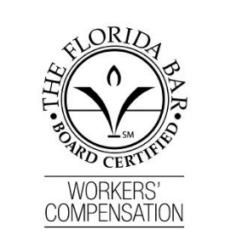If your employer has opted into workers’ compensation in Florida, you should receive benefits if your job makes you sick or if you are injured while doing work tasks. Workers’ compensation provides broad coverage and you are eligible to make a claim any time you can prove your injuries were job-related, regardless of whether your employer was negligent or not.
Unfortunately, in some cases, an insurance company will deny coverage after you have reported a work injury. When an insurer contests a workers’ compensation claim, there are multiple stages of appeal to try to get the decision reversed.
What to Do When an Insurer Contests a Workers’ Comp Claim
When you get hurt at work, you need to report your injury or illness to your employer within 30 days. The insurance carrier should be notified and you should begin to receive benefits including income for lost wages as well as coverage for medical bills.
If an insurer decides that your injury is not really work-related, you may receive a letter denying your claim. When an insurer contests a workers’ compensation claim, you will need to enter the dispute resolution process. Dispute resolution refers to a series of different proceedings that are brought before the Florida Department of Insurance- Division of Workers’ Compensation.
The different stages of dispute resolution include:
- A benefits review conference: An informal meeting held at an office of the Division of Workers’ Comp. A representative from the insurance company will attend and you will have the chance to resolve your disagreements. If a compromise or solution is reached, you and the insurer can sign a binding agreement.
- Arbitration: If you do not agree at a benefits review conference, you can choose to have an independent arbitrator hear evidence and decide on the disputed issues.
- A contested case hearing: If arbitration is not chosen to resolve the dispute, a hearing will be scheduled and both the insurer and the injured worker will have the chance to present arguments to a hearing officer. The hearing officer will notify you of his legally binding decision in writing.
- An appeal before the Division of Workers’ Compensation appeals panel: The appeals panel reviews written arguments about why the decision made by the hearing officer was not appropriate.
- Judicial review of the decisions that were made by the Division of Workers’ compensation. A judge will review the actions taken during the appeals process with the Division of Workers’ Compensation.
You need to understand your legal rights and make compelling arguments at every different stage of the appeals process. If you fail to respond in a timely manner when an insurer contests a workers’ compensation claim, you may be unable to secure benefits.
Workers’ compensation laws indicate that you cannot sue your employer if the company buys workers’ compensation insurance, so you may lose out on your only option for getting benefits after a work injury.

